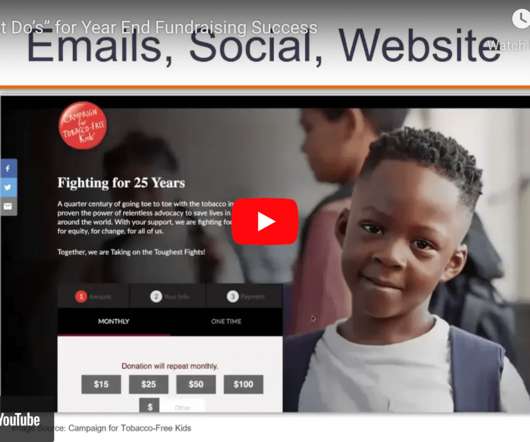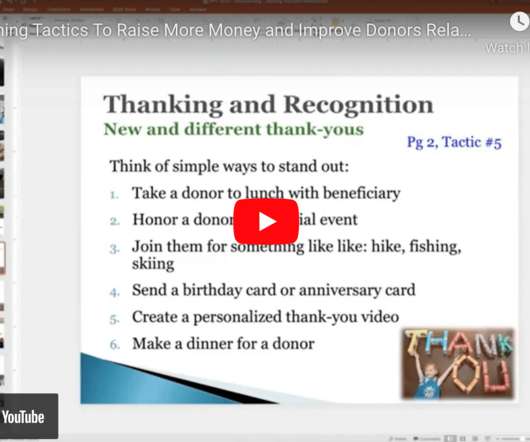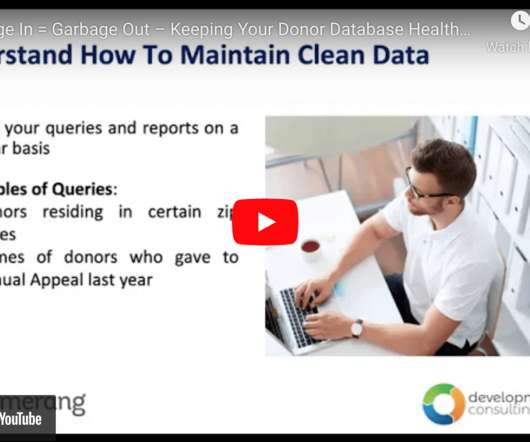Are Associations Losing Their Members’ Trust?—The Leadership ColLAB Explores This Critical Question
.orgSource
MARCH 6, 2023
Trust isn’t a challenge that is currently top of mind for association leaders. But at.orgCommunity we like to explore issues before they become sound bites. That last statistic should make us all take notice. Is it possible that your community has doubts about the organization’s credibility?

















Let's personalize your content